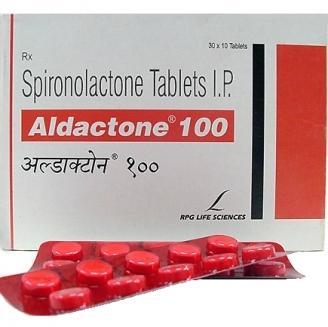Epstein-Barr Virus (EBV): Researchers Discover Mechanism As To How Spironolactone Exhibits Antiviral Properties On The Virus
Source: Epstein-Barr Virus May 31, 2020 4 years, 10 months, 1 week, 3 days, 21 hours, 48 minutes ago
Epstein-Barr Virus: Medical researchers from University of Utah Health Sciences have discovered that the Epstein-Barr virus which causes mononucleosis and is linked to the development of several cancers utilized a unique strategy to survive.

The virus seizes and takes the reins of its host's cellular processes to make copies of itself and to prioritize the production of its own proteins over those of the host cell.
The study team hopes to exploit this knowledge to develop a new kind of treatment for infection by the Epstein-Barr virus.
EBV or Epstein–Barr virus is a human herpesvirus found in 95% of the human population. Like other herpesviruses, EBV can be spread from person to person. However, the virus generally remains latent that is, it lingers inside of cells without actively replicating for the lifetime of the host and rarely causes disease beyond the initial infection.
However in some cases, though, environmental triggers, including stress or coincident infections and immune suppression, create conditions in which the virus can thrive, occasionally sparking a rare type of lymphoma or other cancer.
The University of Utah Health research team found 4 years ago that spironolactone, a medicine routinely used to treat heart failure, has an unexpected antiviral activity against EBV. They discovered the drug targets an EBV protein, called SM, that the Swaminathan lab and others previously showed is essential for EBV replication.
Senior author Dr Sankar Swaminathan, division chief of infectious disease at University of Utah Health and Professor of internal medicine, "We were puzzled as to how spironolactone, a drug thought to work on a completely unrelated pathway involving sodium flux in the kidney, would have an effect on the virus or on SM function."
This new research study helps the study team understand how it works and the research findings are published in the journal:
Proceedings of the National Academy of Sciences.
https://www.pnas.org/content/early/2020/05/19/2000625117
In a past study, a group of French researchers found that spironolactone degrades a host protein called XPB, which plays an important role in cellular transcription, one of the first steps in gene expression.
Based on this lead, Dr Swaminathan and his colleague Dr Dinesh Verma conducted a series of experiments to explore the potential link between the two proteins that the drug interacts with, XPB and SM.
The team first used a molecular biology technique to specifically lower the amount of XPB in host cells. The result was that the virus failed to reactivate and acted as if it no longer had functional SM. Next, the research team showed that SM ferries the XPB protein directly to viral DNA.
Lastly, the study team used a technique that involved chemically tagging uridine, one of the four building blocks of the RNA alphabet, to study replication of the virus. Using this technique, they demonstrated that knocking down XPB resulted in lower levels of messenger RNAs for 15 specific viral proteins whose production SM facilitated, while expression of other EBV genes was not affected.
&
;nbsp;
Dr Dinesh Verma, Ph.D., research Assistant Professor of internal medicine said,
"We showed that SM surprisingly plays a role in activating transcription and co-opts this one cellular protein to do this."
These 15 proteins perform functions that allow the virus to replicate in healthy people.
Dr Swaminathan added, "The virus has evolved to make these proteins at just the right time to keep the infected cells from getting killed just long enough to make some copies of the virus and maybe infect a couple more cells before the immune system kicks in and takes care of it. As is often the case with viruses, this solution is both very specific and highly clever."
It was observed that in patients whose immune systems are compromised, these very same properties, keeping the infected cells alive and helping them evade the immune system can lead to unchecked proliferation, a common characteristic of cancer.
The study team are now trying to find new drugs that target XPB to prevent reactivation of EBV and other human herpesviruses in transplant patients, HIV patients, and other immunocompromised patients.
Dr Swaninathan added, "The long-term idea is that we would be able to develop drugs that would keep the virus completely latent and that this would help decrease the risk of the development of cancers related to EBV. Epstein–Barr virus co-opts TFIIH component XPB to specifically activate essential viral lytic promoters."
For more on
Epstein-Barr Virus, keep on logging to Thailand Medical News.
